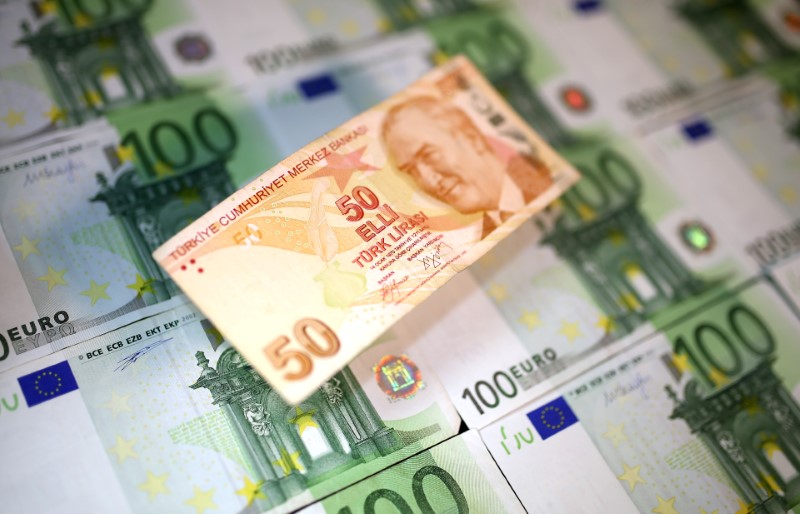Investing.com -- Turkey is lurching toward a fresh currency crisis, with the lira sliding to its lowest in nearly a year after the country’s election authorities annulled the recent municipal election results for Istanbul.
The decision triggered immediate street protests in Turkey’s largest city against the government of President Recep Tayyip Erdogan, and pushed the dollar as high as 6.1976 lira in early trading on Tuesday. That’s the highest since last September, when rising dollar interest rates and a heavy foreign debt repayment schedule threatened to bring down the country’s banking system.
The central bank had to raise interest rates sharply to defend the lira at the time, and the economic hardship since then contributed to Erdogan’s AK party losing control of Turkey’s three biggest cities in elections in March. His critics now accuse him of using the state machinery to overturn a legitimate election.
The lira fell 2% immediately on the news and has fallen another 1.5% since then. At 3 AM ET (0700 GMT), the lira was at 6.1707 to the dollar, which has now risen 16.3% against it this year. That makes it the worst performing of all G-20 currencies except the Argentine peso.
“Erdogan, a political Islamist, once said: ‘Democracy is like a streetcar: ride it and step off when you like.’ Today, he got off that streetcar,” Soner Cagaptay, director of the Turkish program at the Washington Institute, said via Twitter.
Elsewhere, the Aussie dollar rebounded sharply after the Reserve Bank of Australia left its cash rate at 1.5%, disappointing many who had hoped for a rate cut.
The dollar index, which measures the greenback against a basket of six major currencies, was at 97.155, down 0.1%.
Investors are still uncertain what conclusions to take from the U.S. decision – confirmed late Monday – to impose additional tariffs on Chinese imports after accusing it of reneging on commitments it had made in earlier talks on resolving the trade war.
“These trade talks are a black box for us and we are only one tweet away from chaos,” Joerg De Vries-Hippen, CIO of European equities with Allianz Global Investors, told Bloomberg.
China said on Tuesday that vice premier Liu He would after all travel to the U.S. to participate in this week's scheduled talks.
The British pound was higher on reports that Prime Minister Theresa May is closer to securing an agreement with Labour leader Jeremy Corbyn that would take the U.K. out of the EU without the need for a second referendum. It still isn’t clear whether that agreement, which would require the U.K. to join a customs union with the EU, can garner enough support from both parties’ backbenchers to pass in parliament.
Even so, the euro broke through $1.1200 overnight for the first time overnight, and is holding on to most of its gains, despite another disappointing set of German factory orders data. At 3 AM ET, it was at $1.1209.
